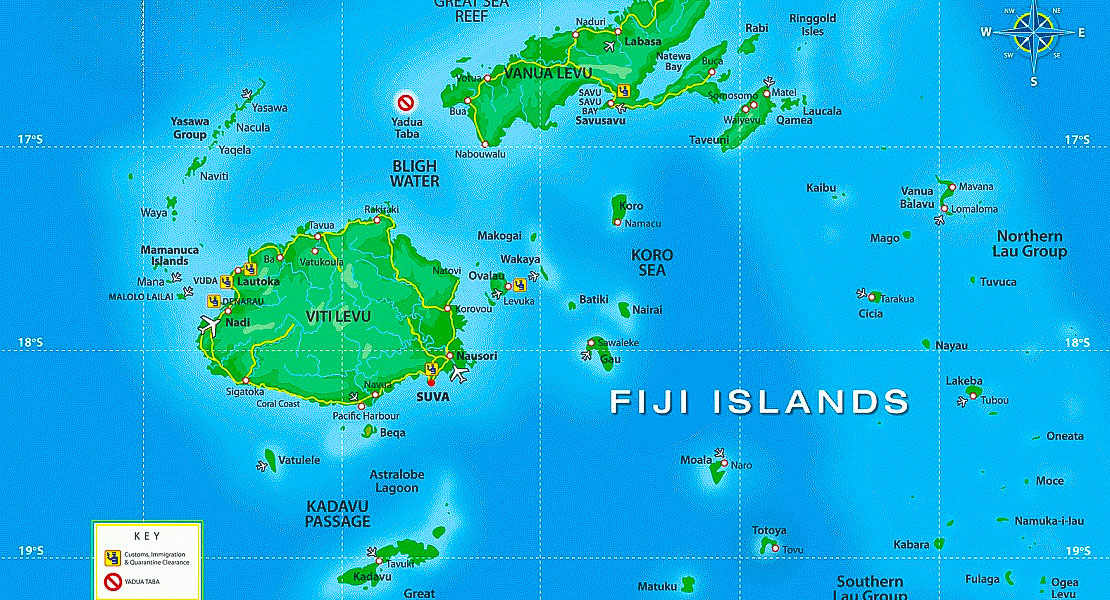Safety tips for travellers in Fiji

Safety tips for travellers in Fiji
Fiji is a relatively safe destination, but like most other places, planning, common sense, and small precautions can help you avoid dangerous situations.
For any emergency, it’s best to consult the hotel or resort you are staying at first. Their local knowledge of the region will help point you to the nearest police station, especially in remote areas.
NATURAL DISASTERS
Fiji is blessed with buckets of sunshine but occasional bouts of bad weather and natural disasters can sometimes hugely impact our communities.
TROPICAL CYCLONES
The hot summer months from November to April are when tropical cyclones sometimes form in the South West Pacific. Cyclones are usually short-lived and of varied strength but can bring damaging winds and heavy rainfall.
Resorts and marinas usually have their own tropical cyclone preparedness plans and will keep everyone informed of what to do if the need arises.
If a cyclone warning is issued, don’t panic. Weather disturbances are tracked once they form in the Pacific and there is usually time to prepare before the weather turns nasty. But if you’re after some extra peace of mind, here’s a few things you can do:
- Check with your hotel about their cyclone preparedness plans. If you are in the outer islands this may include relocating to the main island while the seas are still calm and safe to travel.
- Buy a local phone SIM and data at any Vodafone or Digicel outlet or at the Nadi International Airport
- Stock up on food, snacks, and drinking water
- Follow weather updates on the local radio, television station, or weather websites.
- Keep devices fully charged and conserve their battery. Lanterns, torches, and extra batteries are also handy if the electricity goes out.
- Grab a book, deck of cards, or a board game to stave off the boredom – you could be stuck indoors for a while.
- Stay indoors and out of strong winds unless it’s necessary to move.
- Flooding and storm surge is common so keep away from the ocean or rivers until long after the storm passes.
Port Denarau and Vuda Marina have dedicated cyclone safety areas, but there are also numerous havens for yachts scattered throughout the islands that you can harbor in during a storm.
TSUNAMI
Unlike cyclones, tsunamis are unpredictable and can be triggered after a huge earthquake. If there is a massive earthquake, listen out for warnings on the local radio or websites. If a tsunami warning is issued, there may be very little time to prepare. Timing is essential.
- Gather essential items only (passports, ID, medicines etc)
- Move quickly to high ground, away from the ocean or large river deltas.
HELPFUL WEBSITES & CONTACTS
- Fiji Meteorological Office – National Weather Office
- National Disaster Management Committee – (+679) 3319250
- Check out the Windy website or app for the most accurate weather forecast around your holiday dates and start planning your dream Fiji vacation.
Ocean & Land Safety:
- With so much to explore, it might be tempting to head out on your own. But accidents can happen so where possible take a guide or tell your resort where you’re going.
- Beaches don’t have lifeguards or hazard warnings so it’s best to take precautions in the water. Look out for hidden currents and riptides.
- Don’t take unnecessary risks in remote areas as transportation to the nearest hospital can be scarce.
Road Safety
- Stay within the national speed limit of 80km (50 miles) per hour on the highway and heed speed signs in built-up areas and near villages.
- Wear your seatbelt – they’re mandatory and save lives
- Watch out for potholes, stray animals and cattle that sometimes wander onto roads.
Venomous or Dangerous Animals
- Fiji has no large land predators or harmful snakes and spiders.
- Certain types of sharks can pose a threat in the ocean, but attacks are rare. However, there are lots of other smaller marine animals whose sting or bites can be painful or even harmful. Read more about which ones to avoid here.
Crime Safety:
- Like most places, petty theft can sometimes be a problem so keep your valuables in the hotel safe or close to you.
- Prostitution and drugs (including marijuana) are illegal in Fiji.
- Catch a cab after dark, especially in urban centers.
Police Contacts
Contact your resort/hotel first to report a crime. They’d be familiar with the nearest police post or station – especially in remoter areas.
| REGION | PHONE# |
| Police Emergency Number | 917 |
| Command Centres | |
| Tourism Police | 4502639 / 8307557 |
| Suva Police Station | 331 1222 |
| Nadi Police Station | 670 0222 |
| Fire | 910 |
| Emergency | 911 |
| Crime Stoppers | 919 |
If you need help, feel free to ask for it. Fijians are some of the friendliest people you’ll meet and will often go out of their way to help others.





